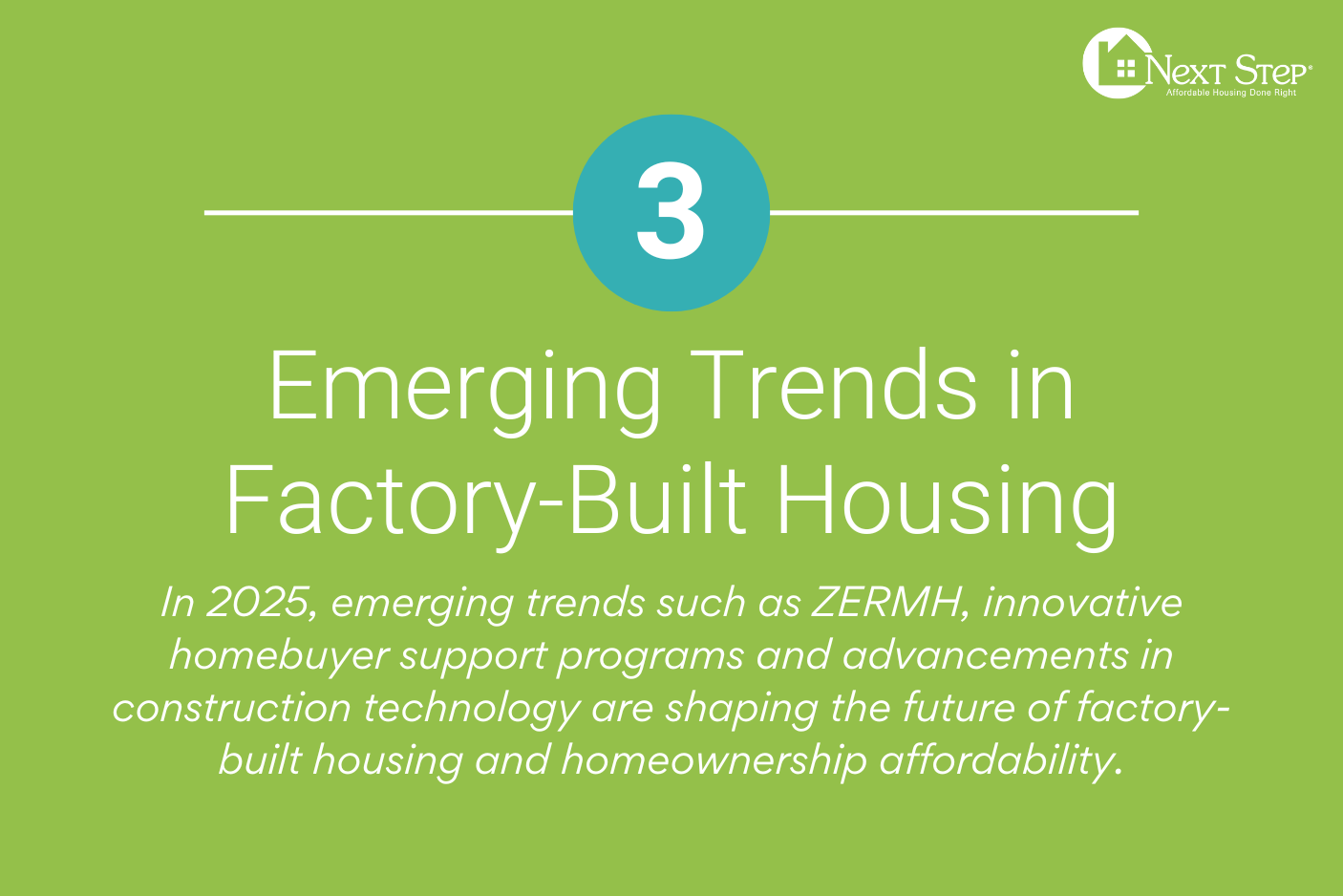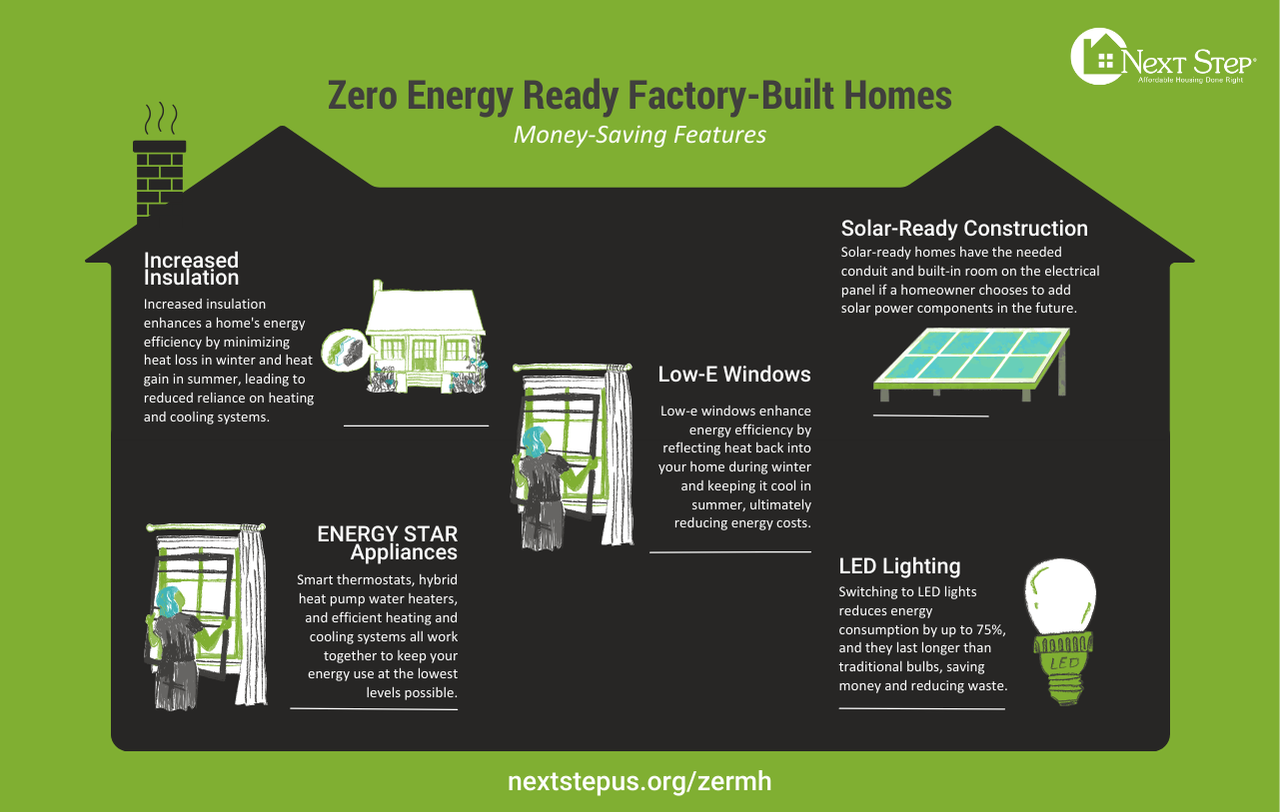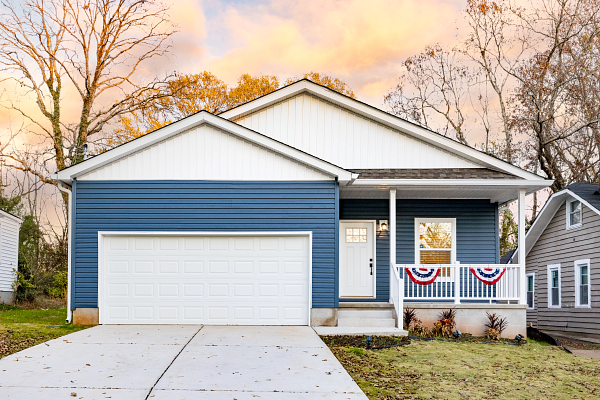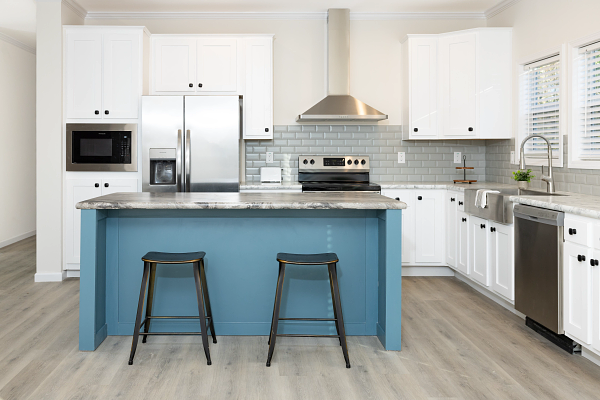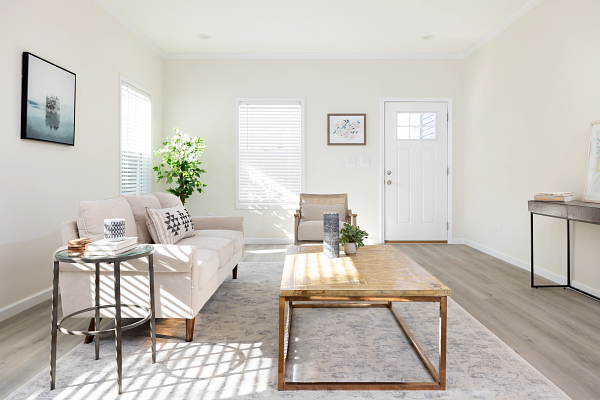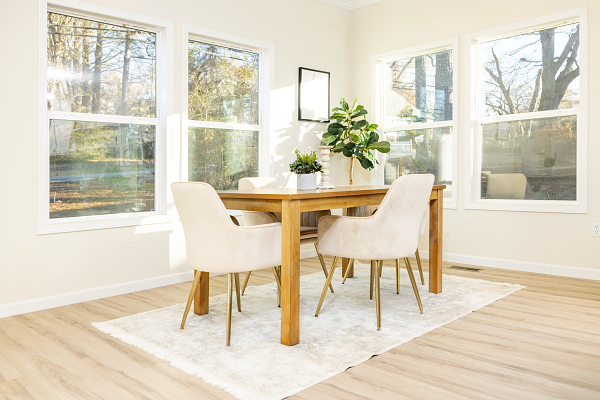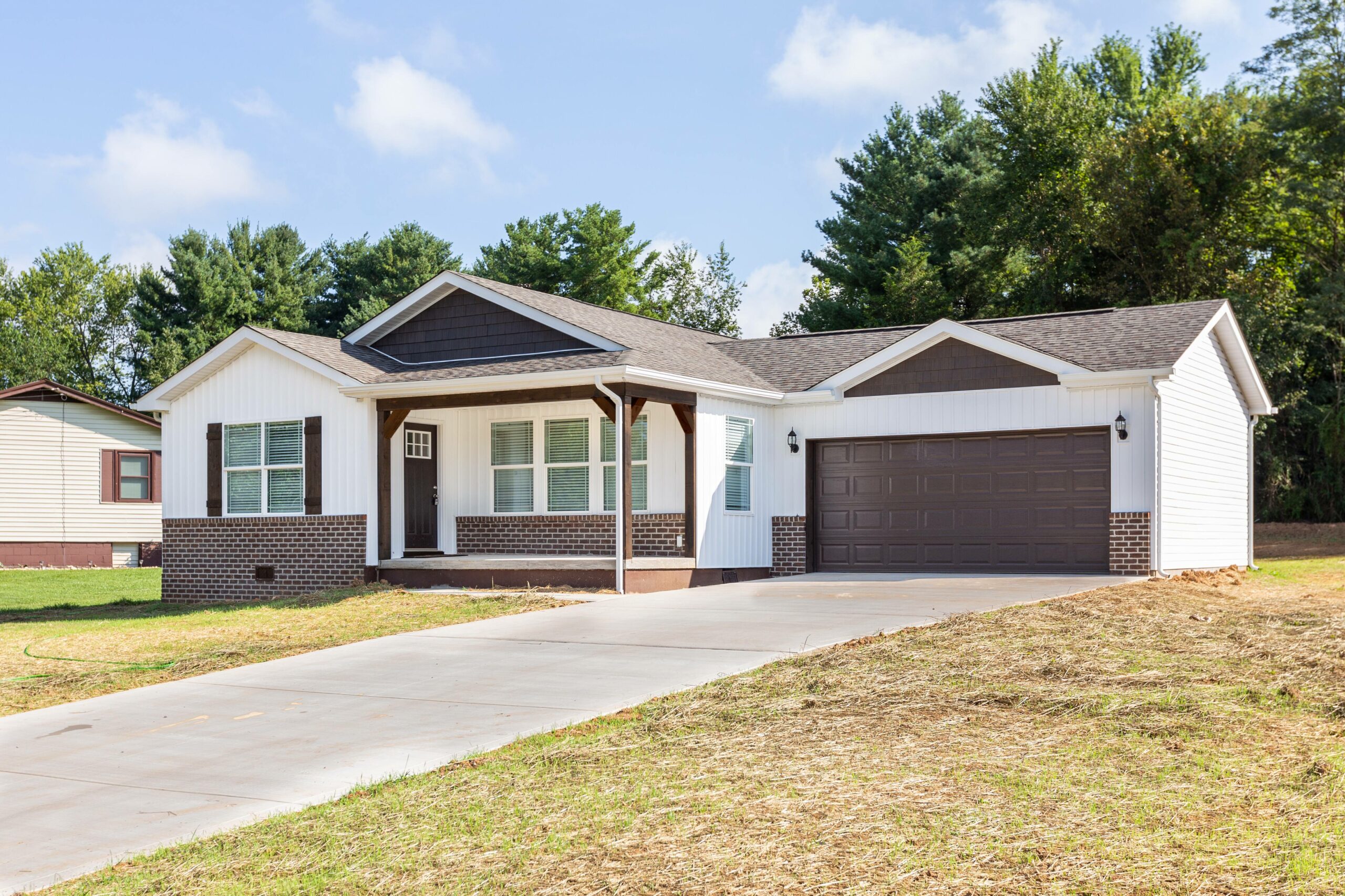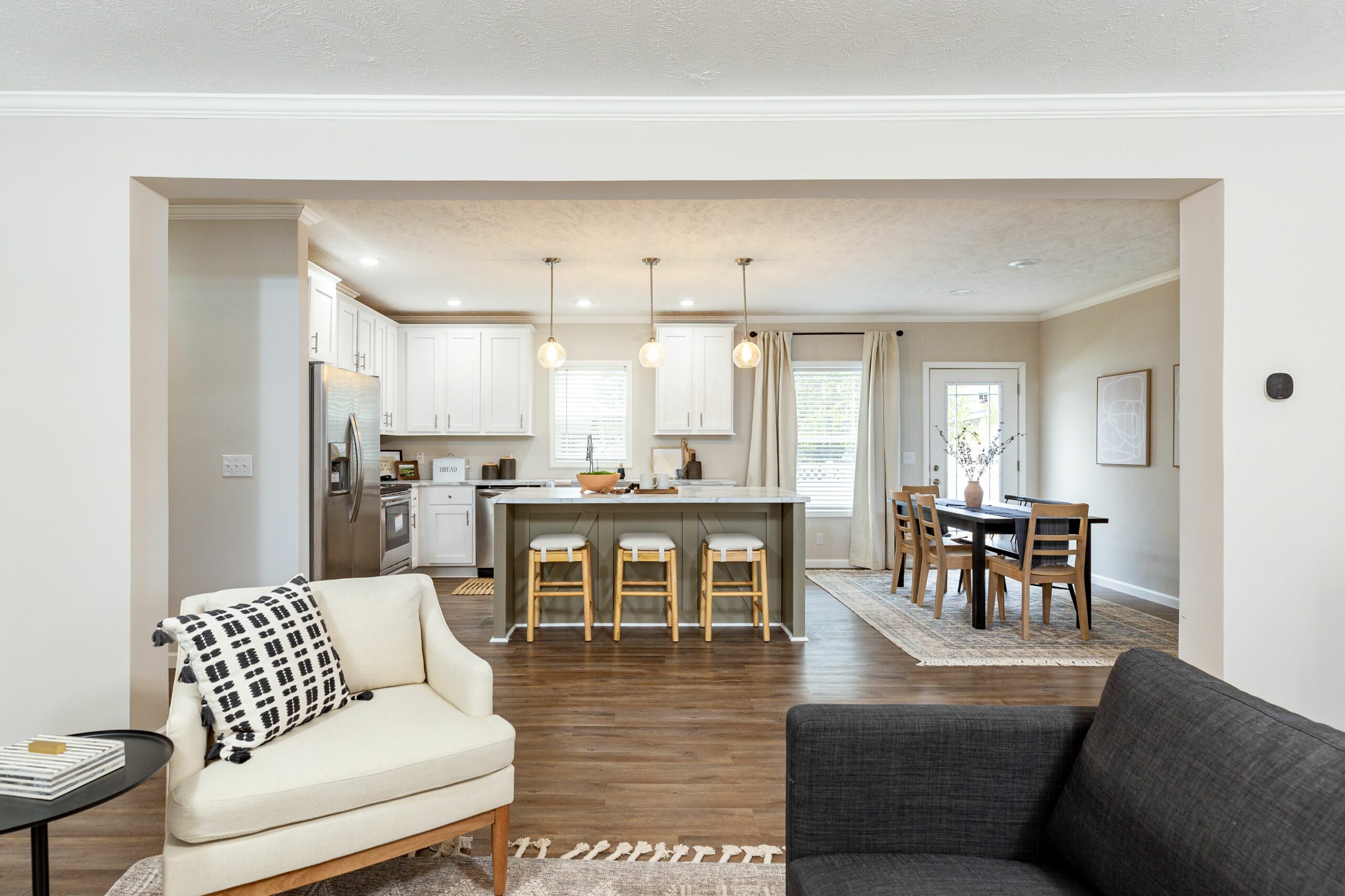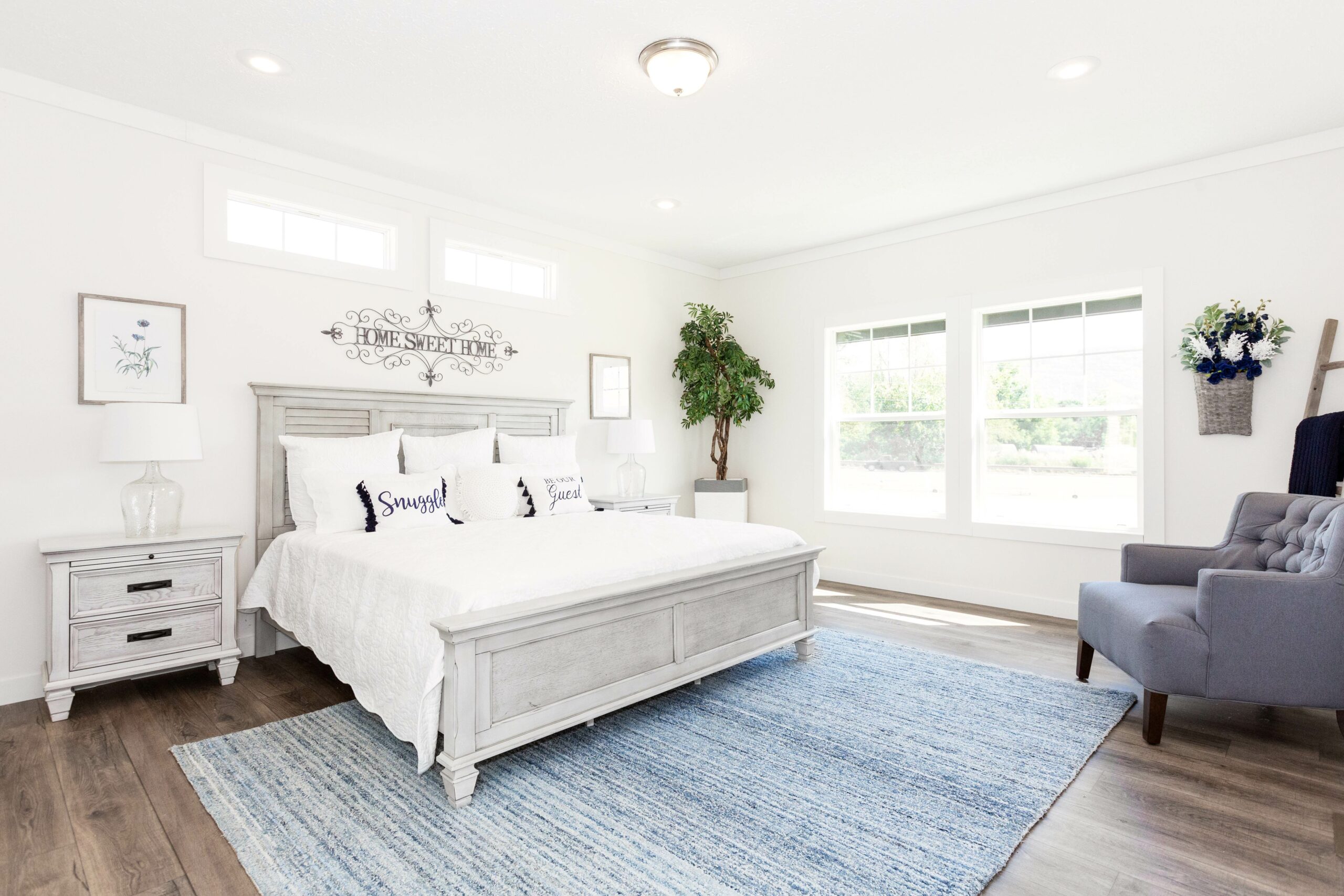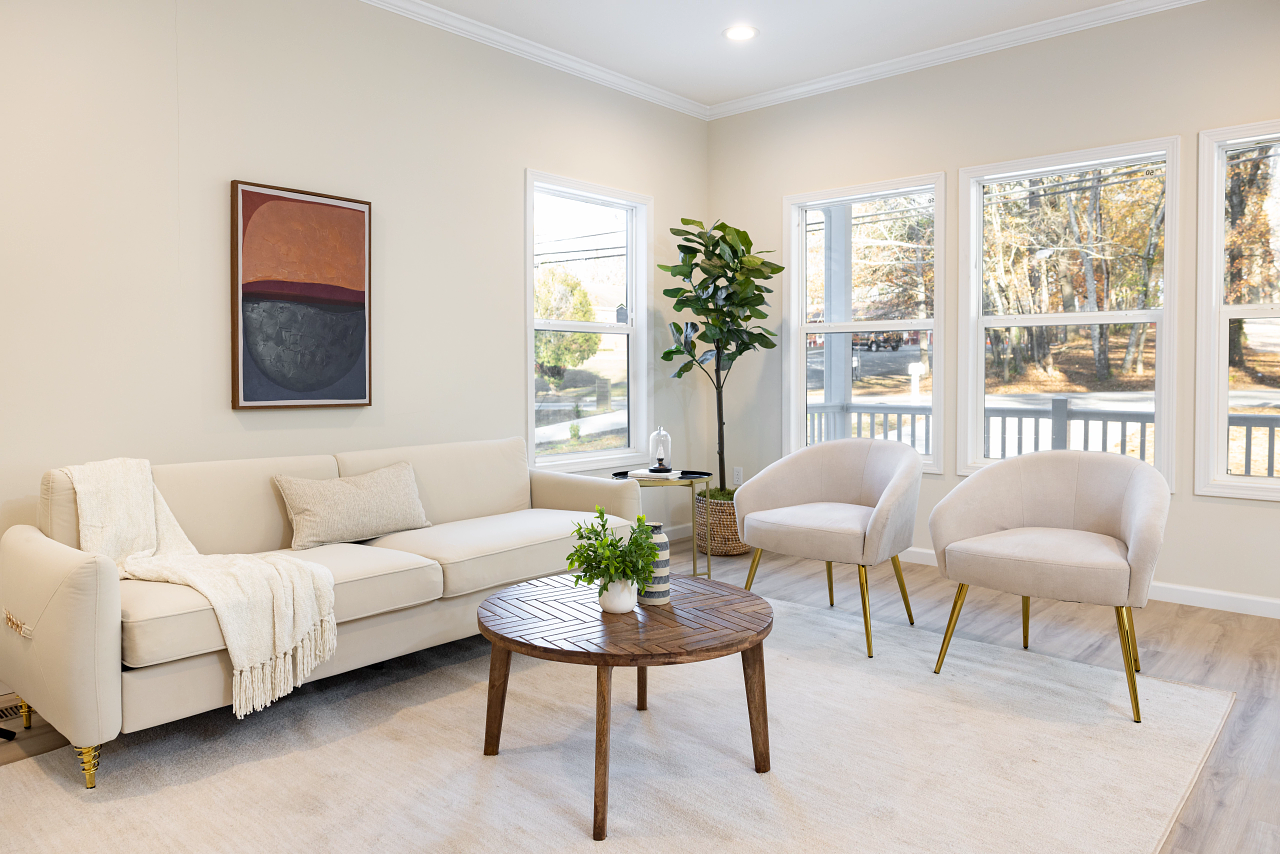The need for attainable housing continues to grow, necessitating creative methods to address these shortages. Rising home prices, limited housing inventory and increasing energy costs have made it more challenging than ever for individuals and families to attain homeownership. Thankfully, there’s an option that can help us all reach our housing supply and affordability goals.
Factory-built homes have undergone significant advancements, proving to be a viable solution that meets supply demands while maintaining affordability. They are no longer viewed as a lesser alternative to site-built homes. Modern factory-built housing offers high-quality construction, energy efficiency and design flexibility tailored to a wide range of buyers.
In 2025, emerging trends such as Zero Energy Ready Manufactured Homes (ZERMH), innovative homebuyer support programs, and advancements in construction technology are shaping the future of factory-built housing and homeownership affordability. These developments present exciting opportunities for housing professionals to rethink traditional approaches and adopt new solutions that expand access to homeownership.
The Next Generation: Zero Energy Ready Homes
Zero Energy Ready Manufactured Homes (ZERMH) are factory-built homes that integrate high-performance construction techniques and next-generation energy-efficient technologies. These homes are designed to be so energy-efficient that they can offset most, if not all, their energy consumption when paired with renewable energy sources like solar panels. Key features include:
- Advanced insulation and air sealing to minimize heat loss
- High-performance windows and doors for better thermal efficiency
- ENERGY STAR-certified appliances and lighting
- HVAC systems optimized for minimal energy use
Leading the way in this space, Clayton offers a no-cost Zero Energy Ready upgrade that meets the Department of Energy’s Zero Energy Ready Home™ standards. Clayton’s Zero Energy Ready, or eBuilt®, homes are estimated to save homeowners up to 50% on their annual energy costs. eBuilt homes are equipped with energy-saving features, such as Lux® low-E windows, high-efficiency electric heat pumps and solar-ready* construction.
For housing professionals, ZERMH represents a strategic opportunity to align sustainability goals with those aimed at addressing affordability concerns. Developers and policymakers can leverage incentives such as tax credits and rebates to make these homes more accessible to low- and moderate-income (LMI) buyers.
*Solar-ready means the home already has the needed conduit and built-in room on the electrical panel if a homeowner chooses to add solar power components in the future.
Expanded Buyer Support Options for Factory-Built Homes
Access to affordable financing and securing a down payment remain crucial factors in expanding homeownership opportunities. In 2025, improved and new support options for factory-built homebuyers are making them more competitive with site-built housing. Key programs include:
- Fannie Mae’s MH Advantage® & Freddie Mac’s CHOICEHome®: These mortgage programs offer favorable loan terms for factory-built homes that meet specific criteria, such as permanent foundations and site-built aesthetics.
- State & Local Grants: Many states and municipalities are expanding grant programs to support the adoption of energy-efficient factory-built housing. For example, California’s CalHome Program provides funding to local agencies and nonprofits to assist low- and moderate-income homebuyers in purchasing energy-efficient factory-built homes, helping to increase affordability while promoting sustainable housing solutions.
- Green Financing Incentives: Loans and grants tied to energy efficiency, such as the Federal Housing Administration’s (FHA) Energy Efficient Mortgage (EEM) program, help offset the upfront costs of ZERMH features.
Housing professionals should stay informed about these programs to guide homebuyers toward affordable financing solutions that make factory-built housing an attainable reality.
Advancements in Factory-Built Housing Technology
Recent innovations in construction techniques and materials are enhancing the quality and efficiency of factory-built homes. These advancements are not only improving affordability but also ensuring homes are built to higher safety and energy efficiency standards. The evolution of automation and precision engineering allows factory-building to produce less material waste, shorten production timelines and provide improved quality control. Additionally, the integration of sustainable building materials, such as recycled steel, helps to reduce construction waste.
Some notable advancements include:
- Climate-Resilient Construction: Enhances structural durability and resistance to extreme weather conditions through advanced building materials and design innovations.
- Smart Home Integration: Offers automation for lighting, security, and climate control to improve energy efficiency and convenience.
- Improved Foundation Systems: Provide better durability, unlock access to specialized mortgage programs and increase the long-term value of factory-built homes.
By embracing these technological advancements, manufacturers and housing professionals can encourage the perception of factory-built housing as a high-quality, forward-thinking solution to the affordable housing crisis.
The landscape of affordable housing is rapidly evolving, and factory-built homes are at the forefront of this transformation. With Zero Energy Ready Manufactured Homes, improved homebuyer support options and cutting-edge construction innovations, 2025 presents a pivotal moment for housing professionals to advocate for and implement these solutions.
By staying ahead of these trends and working with a factory-built housing expert like Next Step, professionals can play a vital role in making sustainable, high-quality housing accessible to more families across the country.
Ready to take the next step?
- Contact us to see if factory-built homes are the right fit for your development project.
- Developers can learn more about our consulting and developer support services here.
- If you want to learn more about factory-built homes so you can recommend them to homebuyers you work with, check out this guide for housing counselors.
- Find more tools and information in our Resource Library for Housing Professionals.
